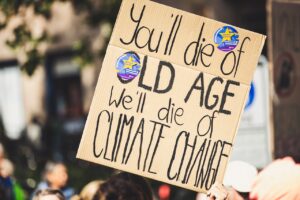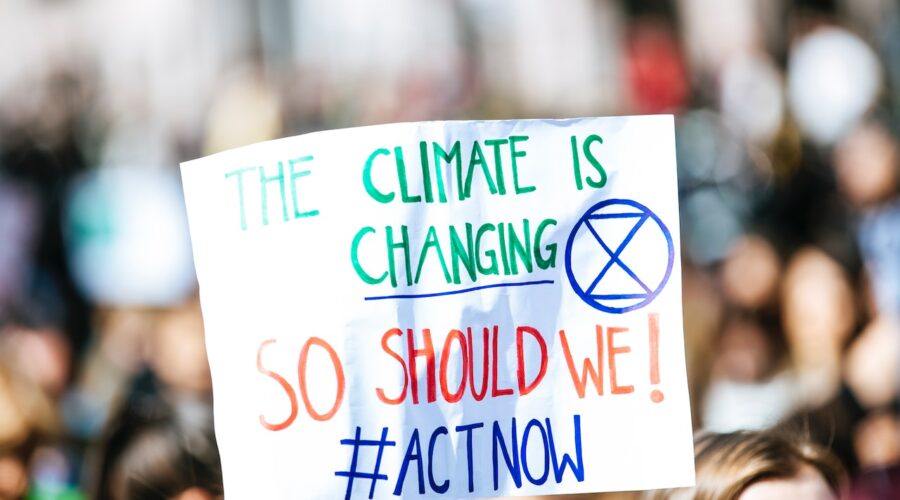Climate change is a global concern. For years, ideas and changes have been proposed and some worrying consequences witnessed. We are at a crucial moment where the steps taken will impact the future of the planet.
New UN report
The Intergovernmental Panel on Climate Change (IPCC) released its latest report on climate change in March, which warns of a dramatic increase in catastrophic events such as droughts and floods, even with action.
“This report is a clarion call to massively fast-track climate efforts by every country and every sector and on every timeframe,” said António Guterres, UN secretary general. “Our world needs climate action on all fronts: everything, everywhere, all at once.”
As a survival guide for humanity, Guterres sums up this extensive document in one sentence: act now, or it will be too late.
This is a synthesis report; the other reports covered the science behind climate change, warned about the changes, the impacts and the means by which we can reduce greenhouse gases. The synthesis brings together the key issues as a guide for governments, which will be superseded in 2030 when the next report will be published.

The known unknowns
One of the most worrisome aspects talks about the “known unknowns” or potential outcomes that could happen, but scientists do not know when and how. One is sea level rise, which is expected to occur by up to one meter by 2100, although it could rise two meters.
Another is the Atlantic Meridional Overturning Circulation (AMOC); in this case, scientists have medium confidence that this ocean current system, which is a key regulator of temperatures, will not collapse abruptly before 2100. However, if the prediction does not occur, we would face extreme stress on ecosystems.
Exceeding the 1.5 °C mark is another concern where some tipping points may occur, meaning the more the planet warms, the more likely we are to experience unpredictable catastrophic changes. However, the report specifies that this may only be a temporary exceedance.
Impacts could increase rapidly without action that could reverse the trend. The report warns that they will become increasingly complex, difficult to predict and more difficult to manage, because as warming increases, there is a greater likelihood of experiencing catastrophic changes.
The current situation
The report found that more than 3 billion people live in highly vulnerable areas at the moment. Some areas are reaching the limit of adaptation to severe changes and half of the world’s population is experiencing water shortages at least part of the year.
“This synthesis report underscores the urgency of taking more ambitious action and shows that, if we act now, we can still secure a livable sustainable future for all,” said Hoesung Lee, the chair of the IPCC.
The latest report from the World Meteorological Organization (WMO) also warns of record-breaking events including glacier melt, sea level rise, ocean warming and rising temperatures.
The suggestions
“The climate timebomb is ticking. But today’s report is a how-to guide to defuse the climate timebomb. It is a survival guide for humanity. As it shows, the 1.5C limit is achievable,” Guterres said.
According to the report, technology and clean energy can be explored to avert the growing climate crisis. And some scientists, while acknowledging major causes for concern, believe that these data should not cause fear, but instead serve as motivation.
“Leaders of developed countries must commit to reaching net zero as close as possible to 2040, the limit they should all aim to respect,” Guterres said.
The report also adds some mitigation techniques with living ecosystems, which involve restoring ecosystems, halting deforestation and offering new approaches to agricultural land. Solutions involving nature offer options for mitigating the climate emergency and the challenges it brings to humans.
The work in progress
The scientific basis provided by these reports has helped to establish new policies, achieve international agreements and improve public awareness in three decades. Although current commitments are not enough, good progress has been made in terms of knowledge and tools that can be implemented.
The climate crisis is worrying and challenging; it is vital to act fast. Although changes will take time, looking at the possibilities can provide a less fatalistic perspective that inspires concrete action.
Images: Markus Spiske and Markus Spiske

